Filter by
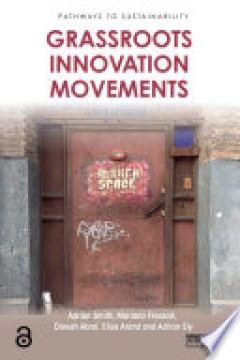
Grassroots innovation movements
Innovation is increasingly invoked by policy elites and business leaders as vital for tackling global challenges like sustainable development. Often overlooked, however, is the fact that networks of community groups, activists, and researchers have been innovating grassroots solutions for social justice and environmental sustainability for decades. Unencumbered by disciplinary boundaries, polic…
- Edition
- 10
- ISBN/ISSN
- 9781317451198
- Collation
- xiii, 240 p
- Series Title
- Pathways to Sustainability
- Call Number
- 303.484 SMI g
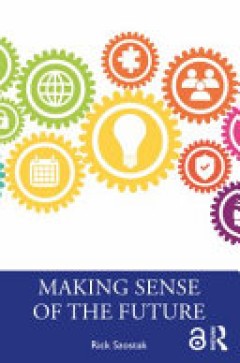
Making sense of the future
Making Sense of the Future integrates the latest thinking in Future Studies with the author’s expertise in world history, economics, interdisciplinary studies, knowledge organization, and political activism. The book takes a systems approach that recognizes the complexity of our world. It begins by suggesting a set of goals for human societies and identifying innovative strategies for achievi…
- Edition
- -
- ISBN/ISSN
- 9781003186854
- Collation
- xiv + 193 p
- Series Title
- -
- Call Number
- 303.49 RIC m
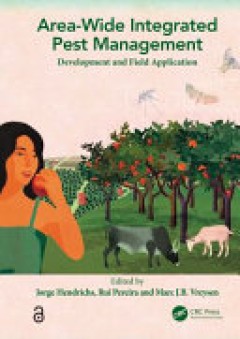
Area-wide integrated pest management : development and field application
Over 98% of sprayed insecticidies and 95% of herbicides reach a destination other their target species, including non-target species, air, water, and soil. The extensive reliance on insecticide use reduce biodiversity, contributes of pollinator decline. destroy habitat, and threatens endangered species. This new textbook attempts to address various fundamental components of AW-IPM, e.g. the imp…
- Edition
- -
- ISBN/ISSN
- 9781003169239
- Collation
- xv + 1020 p
- Series Title
- -
- Call Number
- 632.9 ARE a
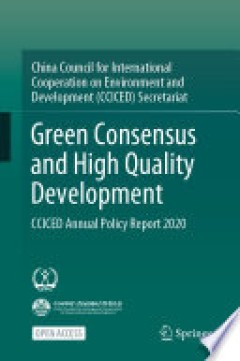
Green consensus and high quality development : cciced annual policy report 2020
This open access book is based on the research outputs of China Council for International Cooperation on Environment and Development (CCICED) in 2020. It covers major topics of Chinese and international attention regarding green development, such as climate, biodiversity, ocean, BRI, urbanization, sustainable production and consumption, technology, finance, value chain, and so on. It also looks…
- Edition
- -
- ISBN/ISSN
- 9789811647994
- Collation
- XXX, 587 p
- Series Title
- -
- Call Number
- 338.951 ZHA g
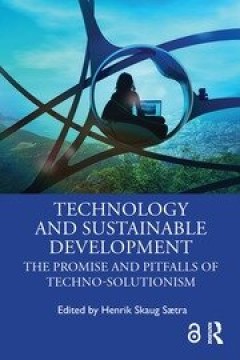
Technology and sustainable development : the promise and pitfalls of techno-s…
Technological change is at the core of all major disruptions in human history, and revolutions, wars, and general development are regularly connected to some sort of technological change. However, not all development is beneficial. While technology has fueled great innovations and rapid development, the notion of sustainable development has gained prominence as we now experience serious social,…
- Edition
- Ed. 1
- ISBN/ISSN
- 9781003325086
- Collation
- 286 p.
- Series Title
- -
- Call Number
- 628 TEC t
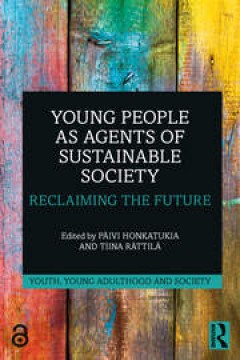
Young people as agents of sustainable society : reclaiming the future
This book analyses young people’s societal participation as a central dimension of their well-being and as vitally important to secure the sustainable future of humankind and the whole eco-social system. It develops a theoretical framework for analysing youth participation holistically, embedded in its everyday context, and as a relational phenomenon, underpinned by universal human needs. …
- Edition
- Ed. 1
- ISBN/ISSN
- 9781003345114
- Collation
- 258 p.
- Series Title
- -
- Call Number
- 304.2 YOU y
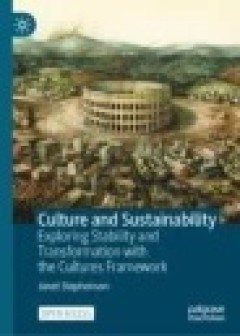
Culture and Sustainability : exploring stability and transformation with the …
This Open access book brings a cultural lens, and a distinctive analytical framework, to the problem of transitioning to a sustainable, low-carbon future. The world faces a seemingly impossible hurdle – to radically alter long-established social, economic and technological systems in order to live within the biophysical limits of the globe, while ensuring a just and enduring transition. …
- Edition
- -
- ISBN/ISSN
- 9783031255151
- Collation
- xvii, 243p. : ill.
- Series Title
- -
- Call Number
- 306.094 STE c
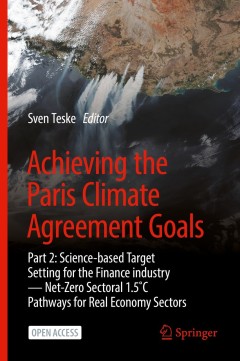
Achieving the Paris climate agreement goals : Part 2: science-based target se…
This open access book is designed as a continuation of the editor’s 2019 book Achieving the Paris Climate Agreement Goals. This volume provides an in-depth analysis of industry sectors globally, and its purpose is to present emission reduction targets in 5-year steps (2025 to 2050) for the main twelve finance sectors per the Global Industry Classification System. This scientific analysis aims…
- Edition
- 1
- ISBN/ISSN
- 9783030991777
- Collation
- lxxviii: 384 PG; ill.
- Series Title
- -
- Call Number
- 621.042 ACH a

Guidebook to carbon neutrality in China
This Open Access publication focuses on China’s goal of achieving peak carbon emissions in 2030 and carbon neutrality by 2060. The book is the first to systematically build a framework combining a top-down and bottom-up analysis of this acute topic. What does carbon neutrality mean for economics in China? Might it imply stagflation or is it an opportunity to maximize the potential of green…
- Edition
- -
- ISBN/ISSN
- 9789811690242
- Collation
- xliv; 335 PG; ill.
- Series Title
- -
- Call Number
- 363.7387 GUI g
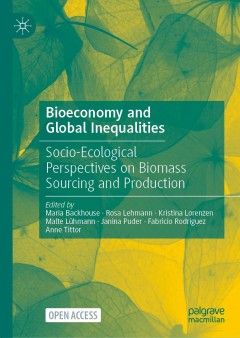
Bioeconomy and global inequalities
This open access book focuses on the meanings, agendas, as well as the local and global implications of bioeconomy and bioenergy policies in and across South America, Asia and Europe. It explores how a transition away from a fossil and towards a bio-based economic order alters, reinforces and challenges socio-ecological inequalities. The volume presents a historically informed and empirically r…
- Edition
- 1
- ISBN/ISSN
- 9783030689445
- Collation
- xvi; 381 PG; ill.
- Series Title
- -
- Call Number
- 354.3 BIO b
 Computer Science, Information & General Works
Computer Science, Information & General Works  Philosophy & Psychology
Philosophy & Psychology  Religion
Religion  Social Sciences
Social Sciences  Language
Language  Pure Science
Pure Science  Applied Sciences
Applied Sciences  Art & Recreation
Art & Recreation  Literature
Literature  History & Geography
History & Geography